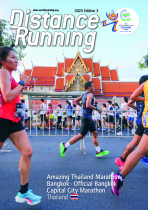Running news
18 May 2020, 10am UTC
Advice to race organisers
From runBritain:
With runners in many countries housebound or facing other restrictions on their assembly and movement “virtual” events have blossomed.
A virtual event is where athletes and runners compete while physically isolated or ‘virtually’. The aim is to run a specified distance or a for a specified time over the course of a designated ‘race window’.
Race directors and event organisers must ensure that runners are encouraged to follow all relevant guidance from the government, police and sporting authorities when participating in virtual racing.
Runners should consider the time of day and period of time they exercise and carefully select their route in order to be able to maintain social distancing to stay clear of other people using public spaces.
Event organisers are not expected to provide first aid cover for their virtual event but must ensure that pre-race information gives guidance for runners in case of accident or injury. This could include reminding athletes to: inform someone of where they are going, to check in with them on their return and to carry an ICE (in case of emergency) card with their details. Event organisers must confirm that they have issued first aid instructions to their runners when applying for their race licence.
At conventional events the event organiser must ensure that the facilities used for their event are suitable but In virtual events the organiser’s influence over the course could be limited. What influence they have is most often used to encourage runners not to use the course that has been used for actual events. Under the current Covid-19 restrictions it is preferable that participants choose their own route. Guidance should be offered on planning an appropriate route for their run as well as any other factors runners should consider.
When the event organiser sets the route for a virtual run (such as a well-known loop in the local area or a Strava segment, etc.), they should ensure that the exact route is communicated clearly and is accessible to all participants who should be instructed to consider the best time to run in order to meet social distancing requirements. This is easier to manage the longer the allowable ‘window’ is kept open for the event.
Events organised by clubs affiliated to national athletics federations may receive public liability insurance under a national ‘umbrella’ policy. Licensed virtual races may be covered free of charge.
You should carry out a risk assessment ahead of your event and ensure this can be made available to the federation. Participants should conduct an assessment of their own route, but event organisers are still expected to have measures in place to ensure that participants’ safely, including guidance on planning a suitable route and procedures to follow in case of accident or injury. These should be outlined in the event plan and risk assessment.
The organisers should plan how event results will be compiled in advance. There are electronic systems available commercially to assist with this or it can be done manually. Determine how much information is required from participants (times, distances, elevation, detailed routes, route maps, etc.) communicate this in advance. If runners are required to use a specific method or app to track their performance it should be readily available and support provided with its use if required.
Actual race performances must not be uploaded to runners’ profiles or used for any rankings/handicap scoring purposes.
Potential issues should be identified in the risk assessment. Your event plan should also identify and describe procedures to be followed in the event of an emergency and communicated to all relevant parties.
It is best to hold a de-brief with the event team afterwards. This will make you aware of any issues, feedback or incidents, allow you to reflect on the event itself and be of help in planning for next time. It is also beneficial to seek feedback from participants if you plan to hold a similar event again.





